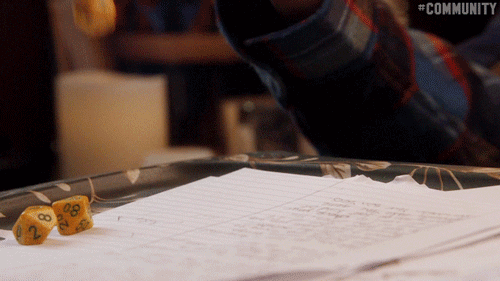As a middle school teacher, I struggled constantly to find a tool that would help me teach students and get them genuinely engaged in any sort of learning. If I had been wise, I would have looked to board games sooner!

I’ve allowed my students to create fundraisers that involved charging other students to throw things at me to help the people of Nepal:

I’ve mathematically analyzed baseball games:

And we’ve analyzed the poetic structure of pop songs:

Sill, the biggest thing I’ve learned though, is that, there is nothing that engages a student more than the concept of a game. And, a great number of board games offer incredibly valuable educational benefits:
1. Practical Math Critical Thinking

One of the most common questions I was asked as a math teacher was “When are we going to use this.” Board games often help answer that question.
Whether the game is Uno or Phase 10, which requires just a basic understanding of probability and matching or a table top miniatures game like Warhammer 40k which requires an understanding of geometry and the ability to calculate distance, damage and a variety of factors, many games require some sort of mathematical equation, and it is almost always an essential component of succeeding playing the game.
The calculations in most games are not of higher level calculus, and sometimes they are simple addition and subtraction – things which most of us actually use in our every day life. The great benefit here is that these games show us the consequences and benefits of advance planning and correct calculations much quicker than we discover them in life. For example, it’s easier to see after a round of even the most basic strategy game, such as Yahtzee or Monopoly, the benefit of planning ahead mathematically.
2. An Actual Understanding of Probability

Humans, as a rule, do not understand probability. There have been multiple Nueroscienific studies about why humans find probability so hard to grasp, such as this one, from Scientific American magazine.
The author of this article explains that people tend to fall prey to something he calls “Folk Numeracy” –
“Folk numeracy is our natural tendency to misperceive and miscalculate probabilities, to think anecdotally instead of statistically, and to focus on and remember short-term trends and small-number runs”
This is something that playing a good amount of games that involve dice will generally reduce(though, it does seem to be an incurable condition).
For example, a seasoned Dungeons and Dragons player knows to some degree how likely they are to get a 5% roll, or a “natural 20.″ The same goes for the majority of tabletop enthusiasts who are able to make educated guesses about the success or failure of maneuvers and attacks via dice rolls.
3. Problem Solving, Cooperation, and Decision-Making (via Play)

Games require problem solving – other than the most basic card and board games (War and Shoots and Ladders) – all games require that you make educated guesses an adapt on the fly. This is a vital skill which applies to pretty much everything in life – but unlike life, where you can make a decision and have to wait days or weeks to see the consequence, you typically see the results fairly quickly in any board game.
So, you may theoretically understand that invading Russia in the winter is a bad idea, but until you’ve tried Avalon Hills 1980 strategy game “War and Peace” you might not really grasp exactly how painful it could be. But, unlike Napoleon, you can figure that out over the course of 3-4 hours, rather than 3-4 months.
More importantly though, the entire concept of “play” increase problem solving and decision making skills, and does so in a way which does not exhaust the mind. Games are, by definition a form of play and a variety of studies have indicated that play has incredible benefits for both adults and children, including but not limited to:
keeping you functional when under stress
refreshing your mind and body
encouraging teamwork
increasing energy and prevents burnout
triggering creativity and innovation
helping you see problems in new ways
– List from HelpGuide
4. Social Development
In terms of social development, board games provide a wonderful opportunity for team work and pleasant competition. With both children and adults, learning how to positively win and lose competitions is a valuable skill, one which a lot of online gaming has lost (if you don’t believe me, log onto XBox live and turn on your microphone…)

But, if you try and do this while playing a board game, you will quickly find that you friends will no longer agree to play with you.
Secondly, board games require you to UNPLUG.

We are so saturated with technology these days that we feel “phantom vibrations” and have “twitter based anxiety” – we need an outlet to unplug, sit down and enjoy something that requires conversation with the person next to us.
Board games do just that – which in turn provides a beautiful educational opportunity for both adults and children.
. . .
Originally published by Ed